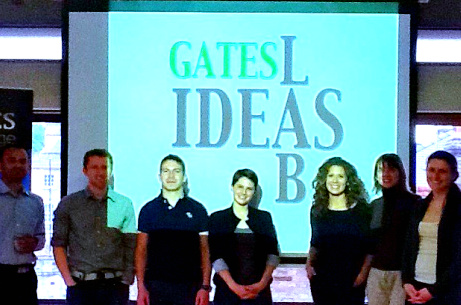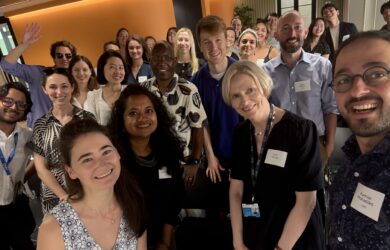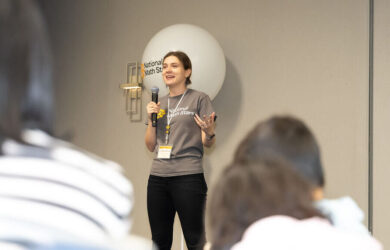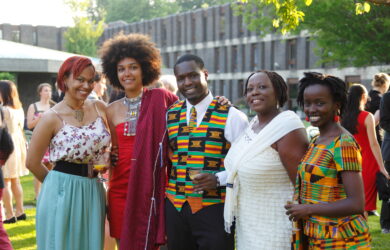
The first Gates Cambridge Ideas Lab was held this Monday.
The first Gates Ideas Lab aimed at fleshing out the big ideas scholars hope to tackle in their research was hosted in the Scholars’ Room this week.
The Ideas Lab, held on 11 June, featured presentations by current Scholars and Alumni, the GIL presented a diverse array of ideas from seven members of the community. Convened by Kevin Nead (Alumni Officer) and Andrés Castro Samayoa (Academic Affairs Officer).
Gates Cambridge alumnus Senthil Natesan (2001) talked about his current work on karyomapping, a universal method for genome wide analysis of genetic diseases. Natesan’s current work focuses on developing a protocol that reduces the length of time of karyomapping from three days to 24 hours, as well as providing a less expensive and more user-friendly interface. His hope is that these technologies can provide screening for genetic diseases at an early age.
Katie Hammond (2011) spoke of how her work on the regulation of egg donors in Canada and specifically its Assisted Human Reproduction Act (2004) shows that gender-based laws, such as those that aim to protect women’s autonomy, might in fact perpetuate legislative and structural inequalities by failing to properly consider the interests of those they seek to protect.
Tara Cookson (2011) asked the audience: “how can we think about care differently — in a way that changes structures?” Cookson’s work on Conditional Cash Transfer (CCT), small monthly cash payments given to poor mothers provided they meet conditions around child school attendance, health checks, nutrition and hygiene classes and ‘voluntary’ community clean-ups. She spoke of the assumptions about poor women and men that underpin CCT programs beginning at the level of policy, and traced them down to the household level, asking questions such as what does it mean to exclude men from a major development programme based on responsibility and their children’s care.
Joseph Bonneau (2008) posed the question: “How can we improve the application of computer science tools and thinking to other research fields?” Using anecdotes from his experience as a computer scientist interacting in a multi-disciplinary community, Bonneau shared his view that there is a need for all researchers to learn about the capabilities of computers to improve the effectiveness of research across the academic spectrum. Bonneau suggested that establishing a consultancy where programmers could aid researchers in other fields might be a way forward.
Alumna Maria Pawlowska (2007) who recently completed her PhD in Earth Sciences talked about her transition to Gender Studies through committed online blogging. Pawlowska shared how online activism can lead to unexpected outcomes. Through her steadfast online activism on issues of gender and sexuality, Pawlowska found opportunities to apply her scientific background to contemporary issues of sexuality. Her experiences led her to receiving a position lecturing in issues of science and sexuality at the University of Warsaw, where she will begin her post in the autumn.
Tovah Ackerman (2011) pitched her idea that access to online education is a needed resource to facilitate the rehabilitation of prisoners in the United States. Her talk, “Educating an Invisible Population”, made the case that sustained educational engagement by prisoners can reduce recidivism and facilitate integration into society. Although she acknowledged that there are some grassroots initiatives already in existence, Ackerman’s idea is based on the integration of the educational programmes available for individuals both inside and outside of prisons through online platforms.
Toby Norman (2011) discussed the positive value of marketing strategies to leverage the awareness for public health initiatives. Asking provocative questions, such as: “Why is HIV awareness in Zimbabwe so high, yet contraceptive use so low? How is it that pharmaceutical companies have practically fine-tuned the messaging for medications on erectile dysfunction into a science, yet our public health messages around sanitation have barely improved over 40 years?”, Norman demonstrated how cutting-edge research in marketing might be used to improve the messaging public health campaigns use in emerging nations in order to improve their effectiveness.
Report by Andrés Castro Samayoa.












